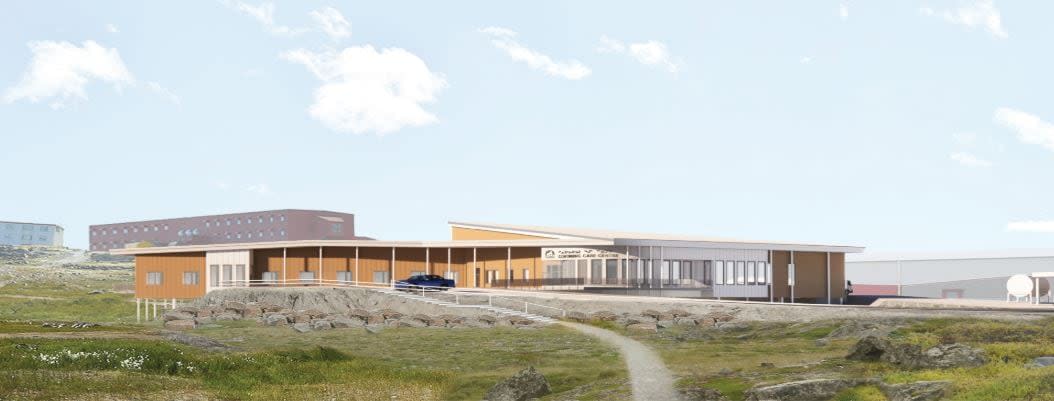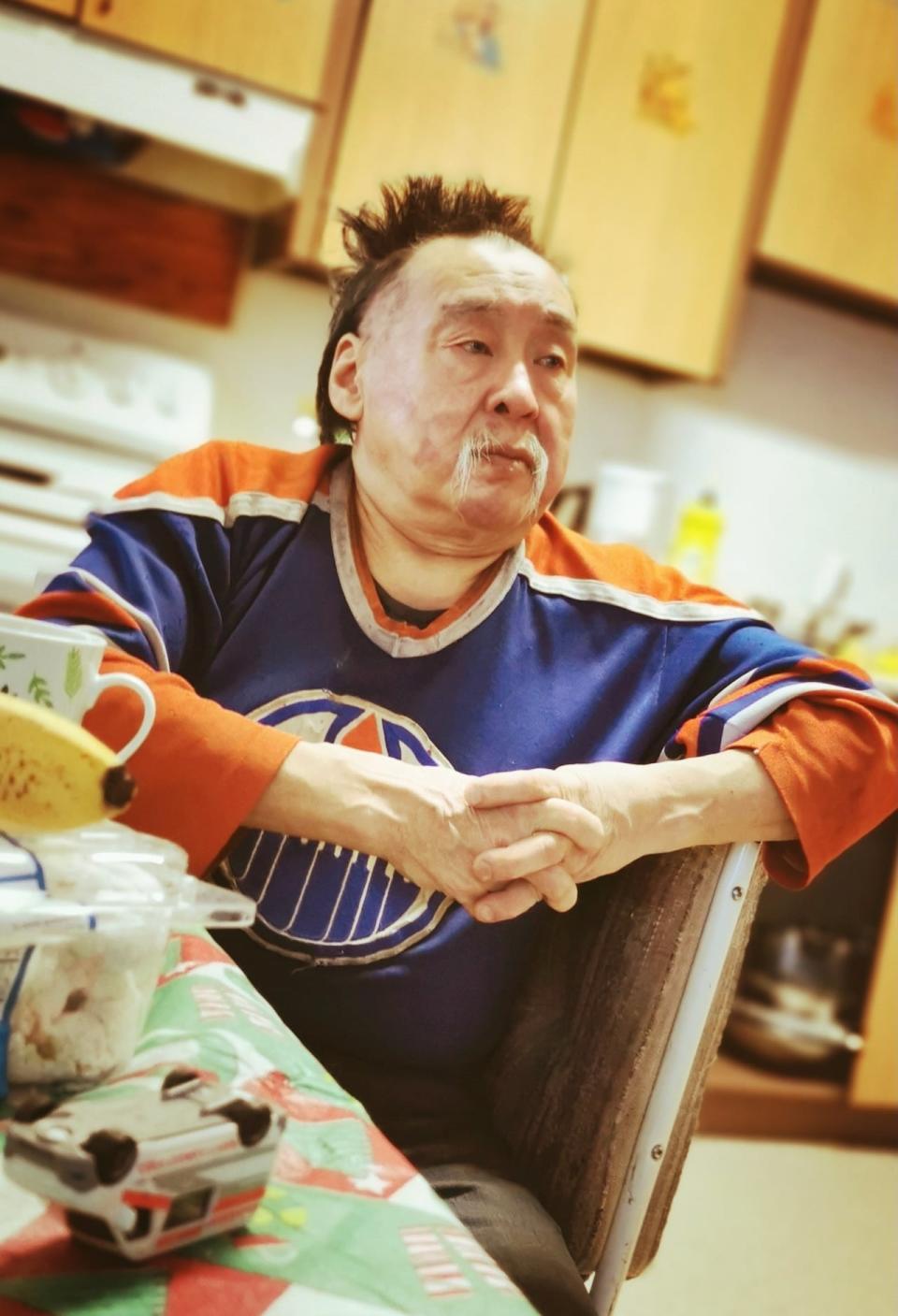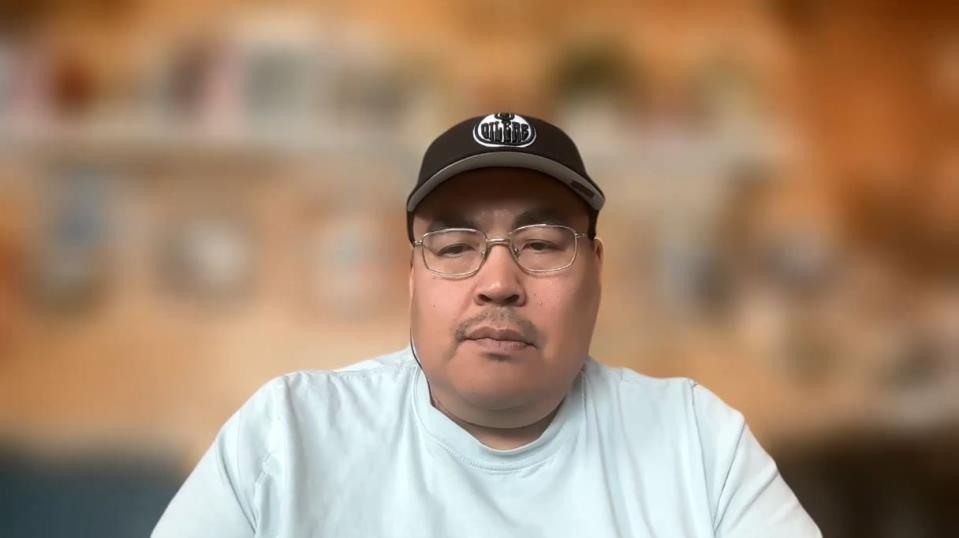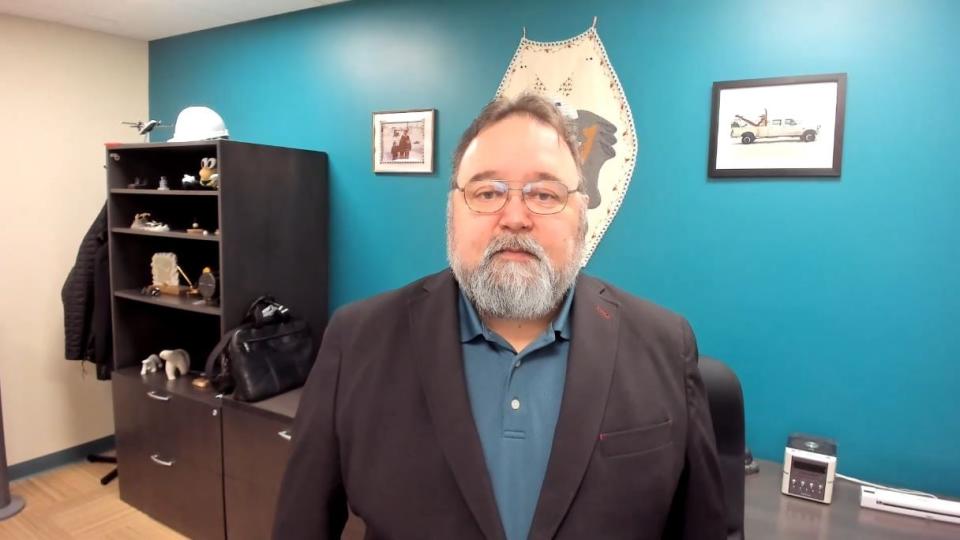Nunavut's 1st long-term continuous care home expected to open in June

Eric Anoee's older brother is living in the Embassy West Senior Living retirement home in Ottawa. But being in an unfamiliar, southern environment is not ideal — for the Anoee family, or for the other Nunavummiut whose elder relatives are being sent there for care.
"It's apparent that Inuit at Embassy West in Ottawa are very far from home," Anoee said from his home in Arviat, Nunavut. "It's not much different for my brother.
"It's hard, but at this time, there's very little options."
That is expected to change in a couple of months with the opening of Nunavut's first long-term continuous care home for elders. The facility is expected to open in Rankin Inlet in June.

Bernard Anoee lives at the Embassy West Senior Living retirement home in Ottawa. His younger brother, Eric, says Bernard's living in an unfamiliar environment outside Nunavut has been difficult for the entire family. (Submitted by Eric Anoee)
That's according to David Kakuktinniq, the president and CEO of Sakku Investments Corporation (SIC). The company won the contract to manage the facility.
"We were pleased to hear that we were the front-runners," he said. "The whole process takes quite a while and we've been at this for about a year."
The contract to run the facility is for 10 years, with an option available to extend it by another five years.
But until the new facility opens, Anoee says only being able to visit his brother in Ottawa twice a year is difficult to deal with.
"We do get, from our government, an opportunity to visit him a couple times a year in person," he said. "But it definitely seems, for the Inuit, they're lonely a lot of time."
Kakuktinniq says the project hits close to home for so many SIC employees and their shareholders, and that taking care of their elders is a "significant file" for the territory.
"It's a place we truly want to be," he said.
Elder care in Nunavut is based on each individual's needs, which are graded on a scale from one to five. Currently, there is a privately-run elders home in Arviat and in Iqaluit, and each provides care up to level three. This includes people who need significant support and placement in an elders home when extensive at-home care is not available.
Elders who need level-four care cannot be provided for at home and must be placed in one of three continuing care centres, which are located in Cambridge Bay, Gjoa Haven and Igloolik.

Eric Anoee says only being able to visit his brother in Ottawa twice a year has been hard to deal with. (TJ Dhir/CBC)
Embassy West is the only facility in the government's network that provides for elders who need the highest level of care (level five). These are Nunavummiut who require 24-hour care and supervision, which can include people who suffer from dementia.
The new facility in Rankin Inlet will be the territory's first privately-run facility that provides care up to level five.
Kakuktinniq says the new facility in Rankin Inlet, which will have space to house 24 elders, will be run through a numbered, yet-to-be-named company. SIC owns 76 per cent of this company's shares, with Embassy West owning the remaining 24 per cent. The numbered company will hire its own staff to oversee the day-to-day operations of the facility.
Embassy West declined an interview request, saying Kakuktinniq is the person to speak to regarding its involvement.
SIC's board of directors is made up of only Inuit members and the company is owned by the Kivalliq Inuit Association. Kakuktinniq says this will ensure that Inuit values are at the forefront of how things will be run in the new facility.
"By corporate ownership and relationships, we're accountable to many layers of boards that are 100-per-cent Inuit and represent, very strongly, the interest of the demographics that we're going to be serving," he said.

David Kakuktinniq is the president and CEO of Sakku Investments Corporation. He says the upcoming long-term care facility in Rankin Inlet is a 'significant file' for Nunavut and its goal of allowing elders to stay in the territory for care. (TJ Dhir/CBC)
This will translate into the company's hiring policy, he said.
"There's a hiring priority in terms of Inuit; local and regional," Kakuktinniq said. "Then you start going outside the boundaries of the territory if you have to."
The Government of Nunavut initially agreed to interviews in English and Inuktitut about the new facility, but later declined. In an email to CBC News, Pam Coulter, assistant manager of communications for the Department of Health, said Nunavut Health Minister John Main will be in Rankin Inlet on Tuesday for a contract signing ceremony, where he will speak to media in both languages.


